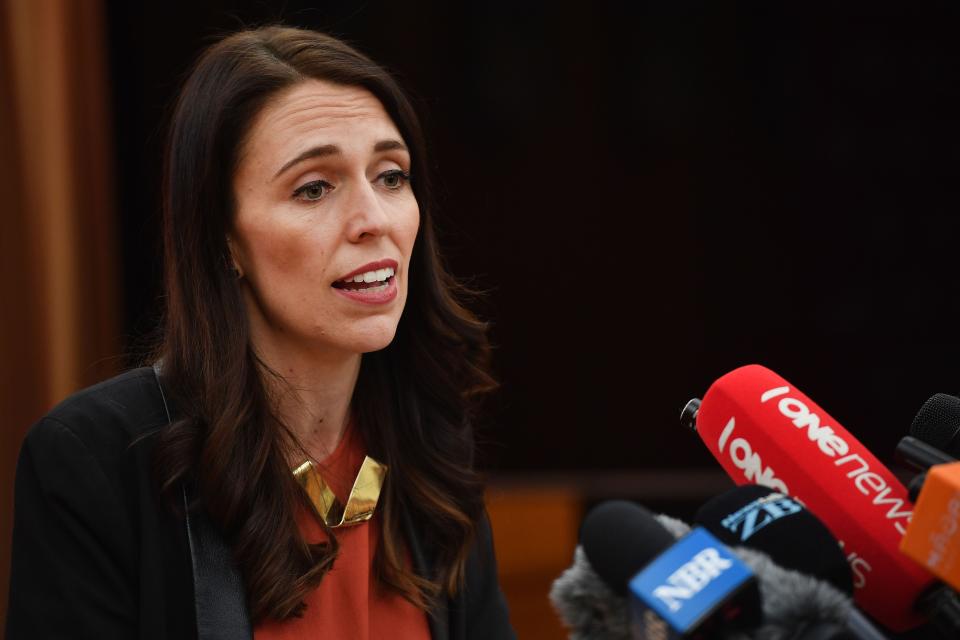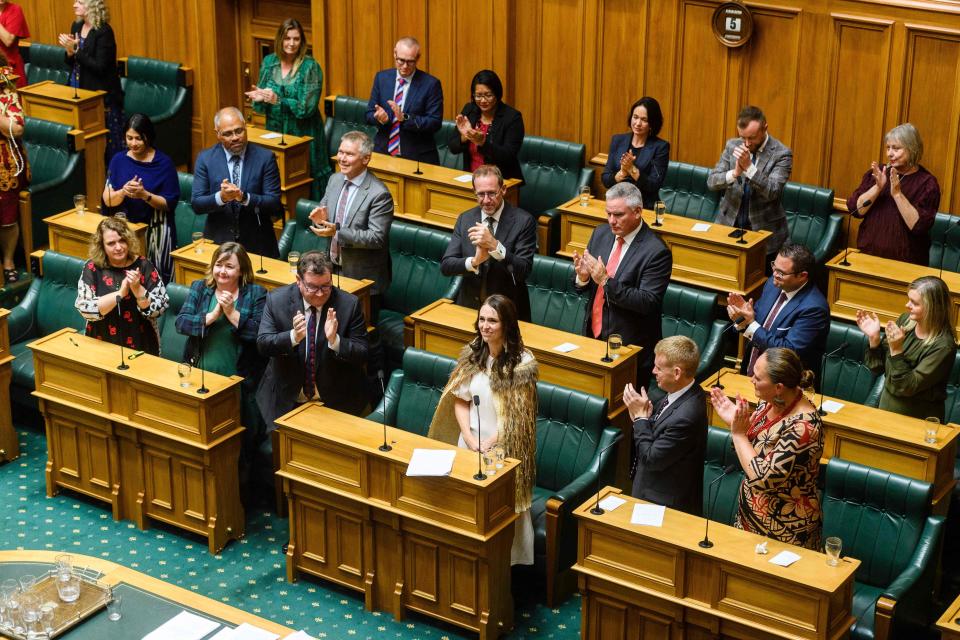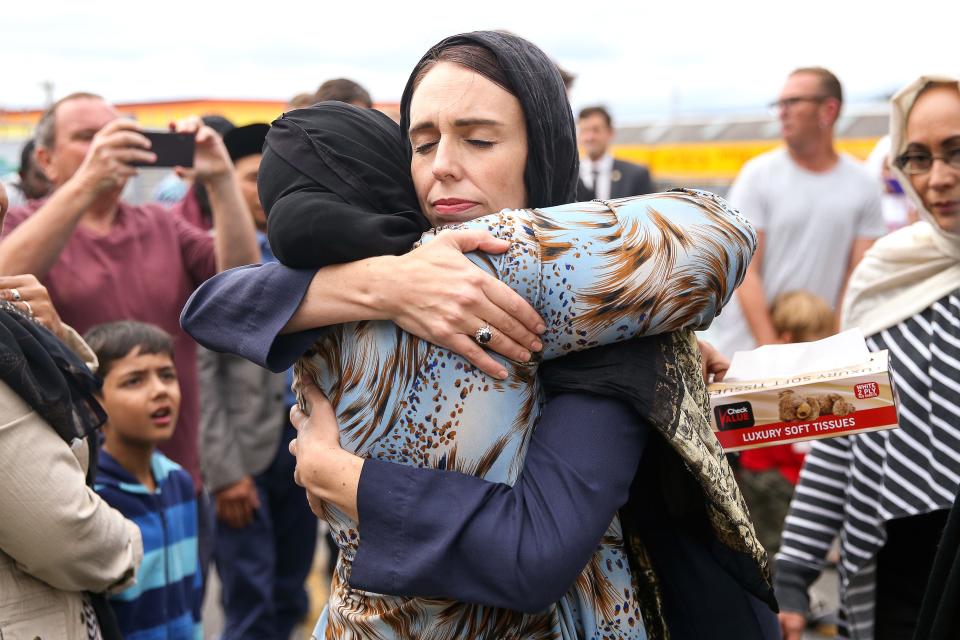Former New Zealand prime minister Jacinda Ardern will join Harvard later this year
- Oops!Something went wrong.Please try again later.
After stepping down as New Zealand's prime minister in January, Jacinda Ardern announced Wednesday she will be heading to Harvard University and joining their school of public policy and government later this year.
Ardern, 42, accepted invitations from the Cambridge, Massachusetts, university to participate in fellowships with its prestigious Kennedy School – where she'll teach the next generation of world leaders, Harvard said Wednesday.
During her more than five years as New Zealand's prime minister, Ardern earned a reputation for leading with empathy, most notably during crises including a deadly extremist mass shooting and the COVID-19 pandemic.
"Jacinda Ardern showed the world strong and empathetic political leadership," said Kennedy School Dean Douglas Elmendorf. "She earned respect far beyond the shores of her country."
WHY DID ARDERN STEP DOWN?: Ardern cites burnout, says not 'enough in the tank'

Who is Jacinda Ardern?
Ardern became the world’s youngest female head of government, at age 37, when she took office in 2017 as New Zealand’s prime minister, according to a Harvard press release.
In 2018, she became the second world leader in history to have a baby while in office.
She won re-election in 2020 at the height of the COVID-19 pandemic by a historic landslide.
Ardern said she is looking forward teaching and taking more time to grow and learn through academia.
“I am incredibly humbled to be joining Harvard University as a fellow – not only will it give me the opportunity to share my experience with others, it will give me a chance to learn," Ardern said in a press release. "As leaders, there’s often very little time for reflection, but reflection is critical if we are to properly support the next generation of leaders."
In January, she stepped down from her position as New Zealand's prime minister citing professional burnout.
"I am not leaving because it was hard," Ardern said. "Had that been the case I probably would have departed two months into the job."
"I know what this job takes, and I know that I no longer have enough in the tank to do it justice," she told reporters in Napier, New Zealand, fighting back tears. ''It is that simple."

What is Jacinda Ardern known for?
Ardern was lauded around the world for her country’s initial handling of the COVID-19 pandemic after New Zealand managed for months to stop the virus at its borders.
But its zero-tolerance strategy was abandoned once it was challenged by new variants and vaccines became available. She faced tougher criticism at home that the strategy was too strict.
In March 2019, Ardern faced one of the darkest days in New Zealand’s history when a white supremacist gunman stormed two mosques in Christchurch, New Zealand, and slaughtered 51 worshippers during Friday prayers.
Ardern was widely praised for her empathy with survivors and New Zealand’s wider Muslim community in the aftermath.

After the mosque shootings, Ardern moved within weeks to pass new laws banning the deadliest types of semi-automatic weapons. A subsequent buyback scheme run by police saw more than 50,000 guns, including many AR-15-style rifles, destroyed.
At Harvard, Ardern will also participate in a separate fellowship through the Berkman Klein Center for Internet and Society, where she will study "tech governance," she said on Instagram.
Contributing: Kim Hjelmhaard, USA TODAY
This article originally appeared on USA TODAY: New Zealand's Jacinda Ardern will go to Harvard University

